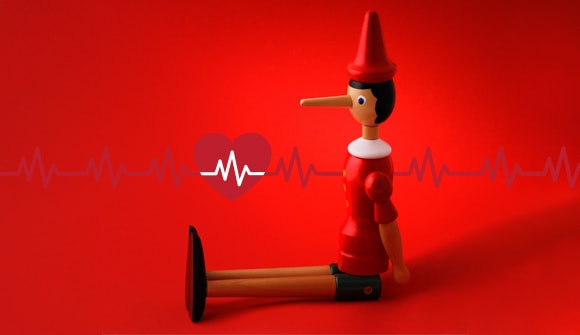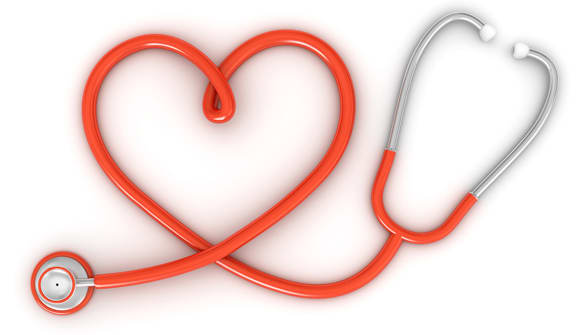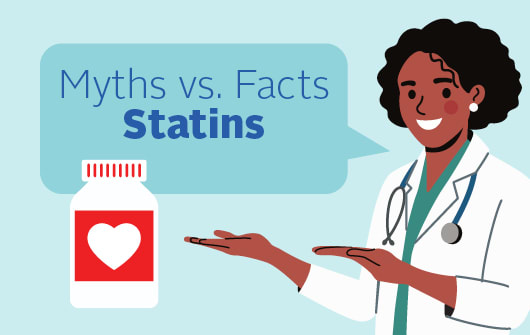Fibs about Afib
5 myths about this heart rhythm disorder.
Article Date:

Atrial fibrillation. Try saying that four times fast! Also known as Afib, this tongue twister is the most common type of heart rhythm disorder in the United States and makes the heart beat up to four times faster than normal.
Characterized by an off-speed beat that may feel like butterflies in the chest, it can lead to an increased risk of stroke and related heart problems. According to the Centers for Disease Control and Prevention (CDC), an estimated 12.1 million Americans will have AFib in 2030.
What is atrial fibrillation (Afib)?
Afib occurs when electrical signals in the heart misfire and cause the atria (the heart’s upper chambers) to spasm rather than fully contract. In a patient with Afib, the heart can beat up to 300 times a minute. For adults, a normal resting heart rate is between 60 and 100 beats per minute.
When it comes to heart arrhythmias like atrial fibrillation, you want to know the difference between fact and fiction to best manage and treat the condition.
Aaditya Vora, MD, a cardiac electrophysiologist with Baptist Heart Specialists, helped set the record straight.
Top 5 fibs about atrial fibrillation
Fib #1: No symptoms means no risk of stroke.
According to Dr. Vora, most patients with Afib underestimate their risk of stroke. Symptoms of Afib vary from person to person, and someone can still be at risk even if he or she doesn’t have symptoms.
“You could very well be at high risk of having a stroke even if you don’t feel any heart palpitations,” he said.
Every second counts when it comes to a stroke. Your chance of survival and recovery depends on how fast treatment starts after symptoms first appear.
The acronym “BE FAST” can help you recognize the signs of a stroke:
Balance: Is the person experiencing a sudden loss of balance or coordination?
Eyes: Does the person have persistent blurred vision and/or suddenly have trouble seeing?
Face: Ask the person to smile. Does one side of his or her face droop?
Arms: Can the person raise both arms? Does one arm drift downward?
Speech: Ask the person to repeat a simple phrase. Is his or her speech slurred or strange?
Time: If you observe any of these signs, call 911 immediately.
To reduce the risk of stroke from Afib, physicians use medicine to manage abnormal heart rate or stop blood clots from forming. Treatment options depend on the person's specific needs.
Fib #2: Afib will go away if you take medicine.
Afib is often a lifelong condition. While medications may help manage symptoms, they’re not a cure.
Common medications prescribed for Afib include blood thinners to improve blood flow or drugs that regulate the heart’s rhythm. These treatments can help reduce the frequency of Afib tremors.
“Two people can take the same medication for Afib and respond differently,” Dr. Vora said. “If you take medications, you may still experience Afib symptoms, but they help manage their severity and frequency.”
Fib #3: Ablations are an Afib cure-all.
During an ablation, an electrophysiologist burns or freezes a small area inside the heart to break up electrical signals causing the heart to beat irregularly. This procedure usually helps relieve symptoms and prevents the disease from worsening over time. But ablation doesn’t affect your risk of having a stroke, and blood-thinning medications may still be necessary, even after the procedure.
“An ablation may not be a cure, but in many cases, it’s the best option for managing Afib symptoms,” said Dr. Vora.
Fib #4: If you only have one Afib episode and it goes away, you’re no longer at risk.
Going back into normal heart rhythm after an Afib episode doesn’t mean the arrhythmia won’t return. Afib is a recurring disease that can worsen without treatment. Risk factors such as high blood pressure, obesity and sleep apnea may put a patient at a greater risk of experiencing frequent or more severe Afib episodes.
People should completely avoid risky behaviors such as binge drinking, Dr. Vora said.
Fib #5: You can stop taking medicine after surgery.
Not so fast, said Dr. Vora. After an ablation procedure, it’s important to stay on all prescribed medications unless otherwise instructed by a doctor.
Your cardiologist can help you determine the best type of medication to treat your Afib by assessing the following risk factors:
- Age (65+)
- Sex (females are at higher risk)
- Congestive heart failure
- Hypertension (high blood pressure)
- Diabetes
- Past stroke
- Vascular disease
“Afib is different for everyone,” Dr. Vora said. “But with help from a cardiologist and a quality treatment regimen, patients can work toward putting their heartbeat back in sync.”
Atrial fibrillation treatment
Baptist Health’s Heart Rhythm Center provides specialized care to people with heart rhythm disorders. If you have questions about Afib or would like to request an appointment with a cardiologist, visit baptistjax.com/afib or call 904.202.AFIB (2342).




